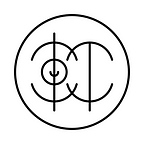Early last week I finally ended months of procrastination and saw the gender specialist at IMH. I hadn’t initially made the appointment with therapy in mind. Mostly I was running low on hormones, and wanted to get a referral to an endocrinologist. But by the time it came around, I was glad to have someone just listen while I vented about how sad I’ve been.
These past months in Singapore haven't been easy, after all. My bouts of dysphoria feel sharper and more frequent than they've ever been. Which, given the triggers, is no surprise. At home, my family tries, but I continue to be misgendered. At work, coming out feels both too risky and too complicated, so it's don't-ask-don't-tell. My androgyny hasn't been questioned, but I continue to be treated as a man.
And almost everywhere else, even in spaces which should be inclusive, even when I do come out, people just don’t get it. They don’t get non-binary identity, and they don’t get they/them/their pronouns. The binary is too ingrained. So I come out, and people smile and nod — and then they continue to use male pronouns.
I’m exhausted of explaining. Of baring my heart, believing that people can learn — only to have them fumble, and stab it in return. And I’ve decided that for me, that’s no longer sustainable. 'They/them' pronouns too hard to grasp? Fine then, use 'she’. It’s close enough. I am sick of people defaulting to 'he’, and I refuse to compromise my welfare any longer because of collective ignorance.
Perhaps this sounds like capitulation — like I’m giving up — and in a way, it is. But it’s also a relief. I am tired of being non-binary — of asserting that identity in a world which gives no space for it to exist. It felt viable, for a while, in college. But now that I’ve graduated, it no longer does — it won’t until mainstream society rids itself of the gender binary.
And who knows when that will happen? Sure, people understand slightly better now that there are many ways of identifying. But how many ways are there of living in a way that’s consistently recognized and accepted? Unless you ensconce yourself in a queer bubble, still just two: as a man, and as a woman. And given those options, I know which I prefer. Once I begin graduate school, I intend to live as a woman.
'Woman', in any case, approximates how I feel well enough. It's become clear these past few months that my internal sense of gender is basically in the ballpark of many trans women's experiences. My dysphoria and body hatred is about as intense, and my longing to 'pass' according to cisnormative ideals of 'the female body' is as strong, if not sometimes stronger. And to the extent that 'identifying as a woman', whether cis or trans, means having internalized (even unwillingly) an idealized notion of 'womanhood' that one constantly measures oneself against, then dear God, am I a woman.
Of course, 'womanhood' isn't without its problems. ('Manhood', it goes without saying, is worse.) As a deconstructionist, and a Buddhist, I can't not know that it's an incoherent concept. As a feminist of both radical and Marxist inclinations, I understand categories and identities like 'woman' to be the product of a class system, one which I would prefer eliminated. As a queer person, 'womanhood' often feels too bound up with straightness, with being attractive and subservient to men.
And I’m so not straight. Which causes problems with this whole 'wanting to be perceived as a woman' thing. Like, I’m not at all keen on the kind of [straight] femininity that’s omnipresent here. I’m tomboy femme. I much prefer pants over dresses, and I really don’t understand frills on women’s tops. I want to wear a tight button-down and look like I’m gay for women, not gay for men.
Unfortunately, that’s kind of hard when you’re 1.8m and flat-chested in a fashion culture as gendered as Singapore’s. Judith Butler casts gender as a performance, one we perform by citing previous performances. Well, the sources I want to cite are Janelle Monae and Ellen Page and Esther Quek — women who wear suits. But if people aren’t familiar with the sources I cite, then how are they going to read me the way I want to be read? I could probably 'pass' if I wore dresses every day to counteract my 'masculine' features. But that is not the kind of woman I want to be.
All of this is why I remain as non-binary as ever. Being non-binary, for me, is political. It is a rejection of the gender binary as philosophically and ethically unsound. It is a protest against the limits on gender that society imposes and that my brain has internalized. It is a refusal to identify with gender categories as anything more than merely conventional, and a recognition that these categories are the product of unjust and avoidable material conditions.
None of that implies though, that I cannot identify — conventionally speaking — as a woman. I identify as a woman because my both my mind and society will not let me live with myself otherwise. And I intend to live as a woman because I intend to live. I remain committed to tearing down the wall that is the gender binary. But I will do it from the other side.
What then, in the end, is my gender? Well, just as 'gender' has multiple meanings, that question has multiple answers. Socially, it may be that I am often perceived, for now, as man. What ought to be respected though, is this: Phenomenologically, I am a woman. Politically, I am non-binary. My gender is at once singular and plural. My pronouns are she and they.
